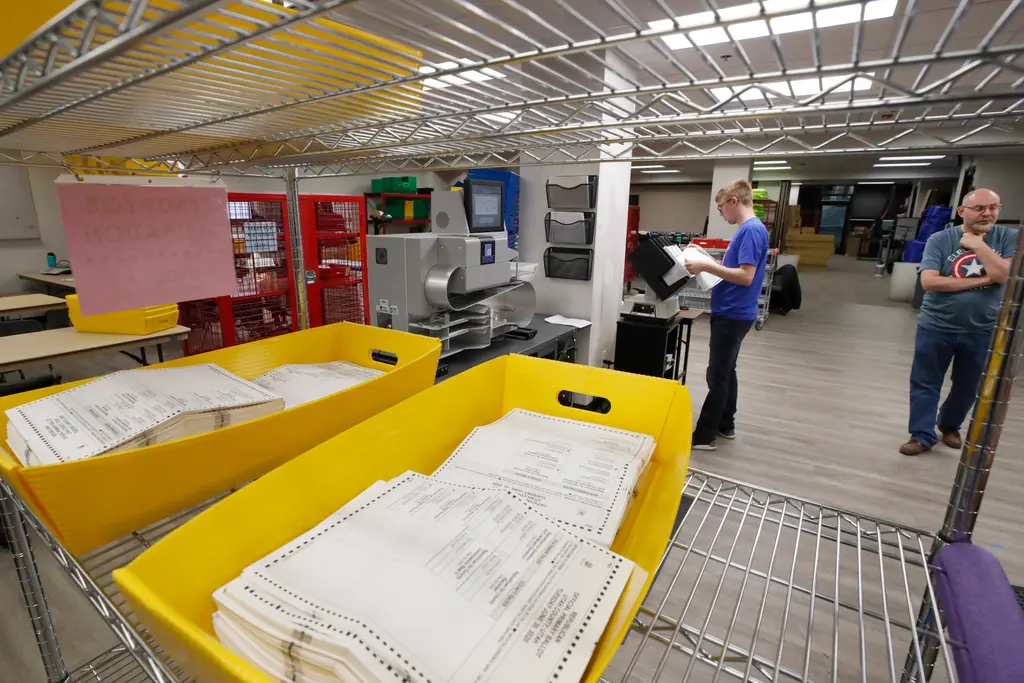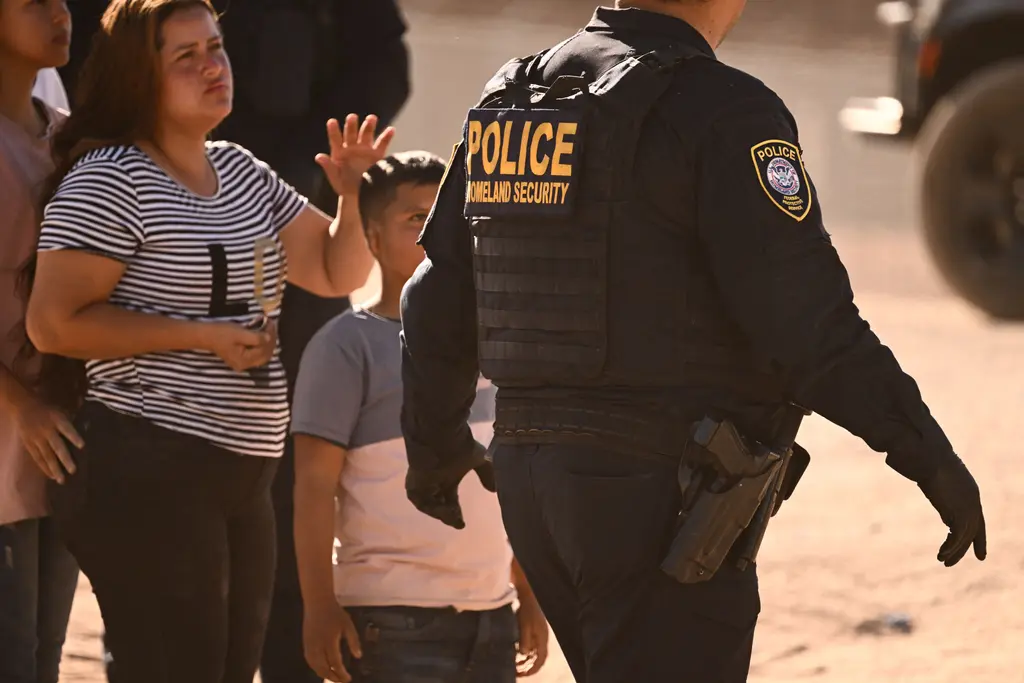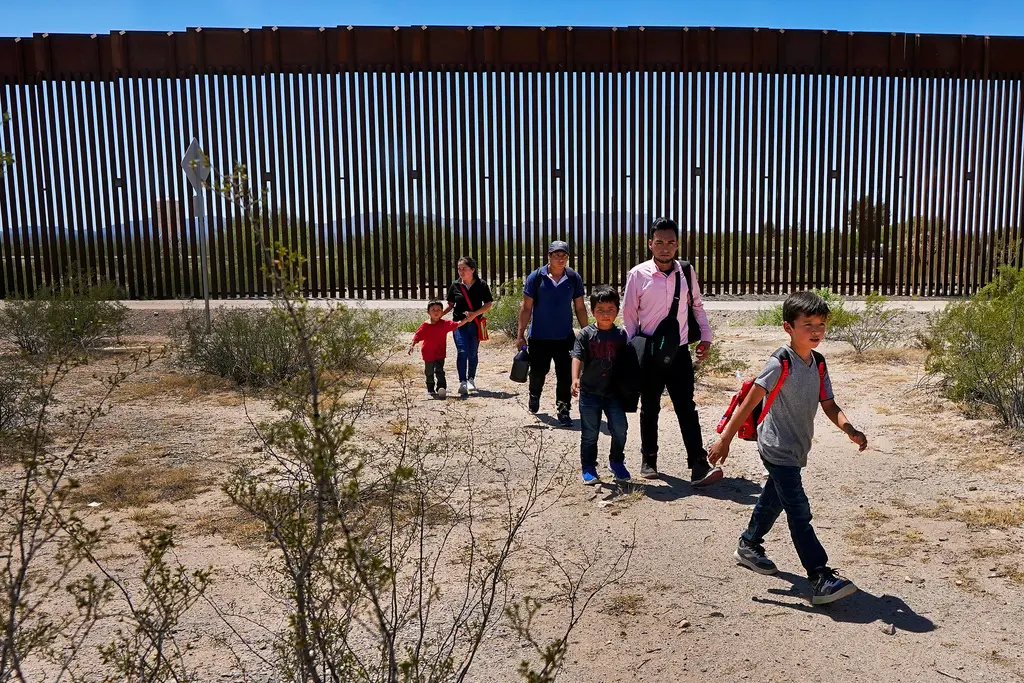The ambassador who sings

The United States is not going to open its border to Mexicans, and President Joe Biden is not going to visit Mexico at the end of September, like the Mexican government wanted.
The United States will continue to quickly deport immigrants with the Covid excuse – using the so-called Title 42 – and the Remain in Mexico program will keep away refugees, without the possibility of applying for a visa in the United States.
Mexico meanwhile continues to repress and detain migrants who want to cross the U.S. border each month by the tens of thousands. And despite all that, the new U.S. ambassador to Mexico, Ken Salazar, is optimistic. And he sings. He believes it's possible to create a new era of cooperation from Canada to Central America.
And he sings. He believes it's possible to create a new era of cooperation from Canada to Central America.
He arrived for his first television interview as ambassador, in English or Spanish, wearing a white cowboy hat, cordovan boots, tie and glasses. It's his typical dress. I've known him since he was a U.S. senator from Colorado – when there were only two Hispanic senators – and later as Secretary of the Interior in the Obama istration. He arrived with his wife, two daughters and one of his grandchildren. And we chatted, in both languages, in the garden of his official residence in Las Lomas de Chapultepec.
He told me there's no date for reopening the border with Mexico. “The decision will be made based on science (taking into consideration) the care for the health of our people,” he said. But his plan goes beyond the border. “President Biden wants an immigration system that works for the region – Mexico, the United States, Canada and Central America. And that's what we're doing. We are looking for solutions that have been needed for years.”
Many of the anti-immigrant policies adopted by the Donald Trump istration – such as Title 42 and the Remain in Mexico program – remain in place, eight months after Biden was sworn in. Does it bother him when they compare Biden with Trump? “There is no comparison,” the new ambassador told me. “Joe Biden has a Latino heart. He knows what it is to not have a lot oft money. He knows what it is to suffer … He know that the future requires integration. That's what we're working on.”
But that new integration has put Mexico in the role of oppressor. Mexico's National Guard, agents of the National Migration Institute and soldiers have recently become, in fact, the border patrol for the United States, blocking the way for thousands of Latin Americans and Haitians.
Más sobre Opinion
Are you pressuring President Andrés Manuel López Obrador to turn Mexico into a U.S. border wall, I asked him. “The reality is that we must have control over the borders of our countries,” he replied. “We have to collaborate with the Mexican government.”
Facing criticism that Mexico is doing the dirty work for the United States along the border, López Obrador declared recently that his country “is not a pelele” for the neighbor to the north. (There is no exact translation for pelele in English. The dictionary says it is “dummy” but that's not exact.) Regardless of the translation, the ambassador agreed with AMLO. “Of course Mexico is sovereign, and protects that sovereignty. That is being Mexican. And within that sovereignty there are many things we can work on together.”
Cuba is not one of those things. The Mexican president invited the brutal Cuban dictator Miguel Diáz-Canel to the recent ceremonies marking Mexican independence. Diáz-Canel is responsible for the horrible repression of Cuban protests in July demanding more democracy and freedom. Was that invitation a challenge to the United States? “Mexico has its sovereignty,” he answered. “The interests of the United States are not the same … But we have to focus on the big things where we can agreed. And I believe there are many.”
Like the fight against drugs and weapons trafficking?
Does the United States share the blame for the violence in Mexico? Almost 100 people are killed in Mexico on an average day. Many of the weapons used by the drug cartels come from the north, and the United States is a giant market for consumers of drugs that come from the south. “We don't have to say who's to blame,” the ambassador told me. “The fact is that the drugs consumed in the United States are part of a problem we share. The handguns and (rifles) that come here are part of the problem. What is needed is that we – the governments of Mexico and the United States – work to resolve the problem of the lack of security.”
Journalist Alan Riding once defined the relationship between Mexico and the United States as “distant neighbors.” Salazar doesn't see it that way, and notes that more than 60 million Latinos live in the United States. “I see it as one people,” he told me. “Two nations, but one people. We have the same roots. The border (created in 1848) separated us. But it did not separate the spirit and the values we share of family, faith, culture. So what we have to do is to grow more united.”
The enthusiasm and desire for change voiced by Salazar, who is 66 years old, is genuine. And he knows he doesn't have a lot of time to offer solutions.
The border is being overwhelmed. In July, nearly 200,000 people crossed illegally into the United States – the highest monthly total in more than two decades. Is that the new normal? “No,” he said, switching to English. “And I say no because I believe that there are things that we can do in the short term and longer term.” The ambassador agrees with the president of Mexico that it is necessary to attack the causes of migration as quickly as possible and invest significantly in Central America. He believes the problem of migration must be addressed in a “holistic” manner.
At the end of the interview, I invited the ambassador to stroll with me along the Paseo de la Reforma, and he didn't hesitate for one second. Under the watchful eyes of his security team – a new sensation for someone who feels more at ease in the freedom of his Colorado ranch – he told me how the border crossed the Salazar family.
Before the 1848 war, they lived in Mexican territory. And afterward in U.S. territory. And that's why he defines himself as a “Mexico-American.” It shows that for him, integration (even of opposites or old enemies) is something natural. Familiar.
As I left, I told him that many people were pleasantly surprised when he mentioned a Jorge Negrete song when he arrived in Mexico. He quickly touched the tip of his hat and started to sing it. “México lindo y querido, si muero lejos de ti, que digan que estoy dormido y que me traigan aquí" (Beautiful and beloved Mexico. If I die far away from you, may they say that I’m asleep. And may they bring me here.”).
I left thinking that few things can deflate the enthusiasm of an ambassador who sings, and who arrived when he was most needed.



